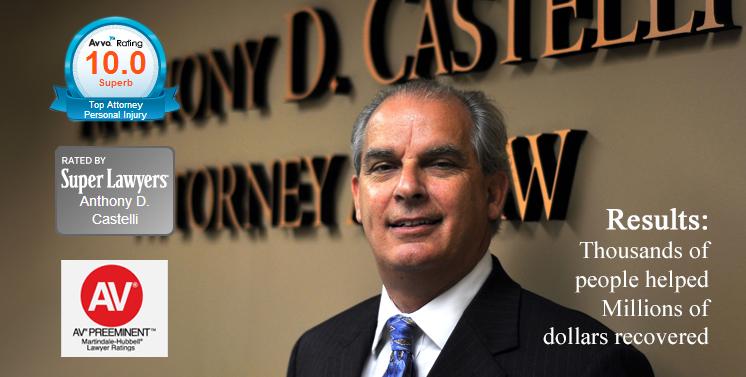Posted: June 23, 2017
Social media has led to personal injury claims, so too has social media ruined those claims.
Social-media (i.e. Facebook, Twitter, Instagram) now seems to dominate every area of our lives. Whether it be while walking down the street or driving on the highway, far too often we see people fully engulfed by their respective iPhone or Android. In fact, not only is using your phone while driving dangerous, causing over 1.6 million crashes every year, so too is using your phone while walking. In fact, according to a study conducted by The Ohio State University, in 2010 alone, over 1,500 pedestrians were treated in emergency rooms due to injuries related to texting and walking.[1]
Further, according to the National Safety Council, distractions due to phone usage accounted for over 11,100 injuries between 2000 and 2011, with injury rates rising steadily every year.[2] Surely, as both our access to (and reliance upon) phones increases, so too will injury rates resulting from the increased usage of said phones. However, social-media usage don’t just lead to injury, but can actually sabotage any personal injury claim that you may be pursuing.

Social-media phone use can harm your case just as much as it can harm you.
Certainly, we are all supremely aware of how phone usage can result in a personal injury claim, whether it be an automotive or walking accident. But what several parties fail to realize is how social-media usage can damage a personal injury claim. Far too often, people pursuing a legitimate injury claim are denied due to a seemingly benign social-media post.
Claimants, generally are seeking two things; compensation for monetary expenses, and compensation for noneconomic expenses (i.e. pain and suffering) as a direct result of the given accident. In order to receive any recompense for said pain and suffering the claimant, usually represented by an attorney, must gather evidence that proves a connection between injury and the sought-after compensation.
Such evidence includes testimony from doctors, witnesses, and/or anyone who could conceivably vouch for the anguish of the claimant. In that same vein, the job of the “offending” party – the defense, if you will- is to gather evidence of the contrary. Their job, essentially, is to undermine your claim in an effort to make your mental, physical, and financial injuries seem less severe.
According to adjustors and attorneys, the fastest and easiest way to gather evidence refuting the injured party’s claim, is via their online presence. In fact, requesting access to a claimant’s social-media is now standard practice among several defense attorneys.[3]
Countless claims have been tarnished due to seemingly benign social-media posts.
The reason defense attorneys request social-media access is because they are well aware of the countless claims that have lost value due to the reckless, contradictory, posts made by claimants. In fact, even the most wholesome, benign posts, can shave hundreds of thousands of dollars off of your personal injury award. One real-world example of social-media having an effect on a judgement can be found in County State Court.
In the lawsuit, the plaintiff suffered a concussion and forehead scarring due to an at-fault commercial vehicle. The crux of the plaintiff’s claim rested upon her embarrassment and anxiety about a noticeable scar, as well as a hand injury that allegedly prohibited her from carrying out her duties at work. This seems to be a woman in great anguish who is in dire need of compensation. However, her twitter posts from the year between the accident and the trial painted a much different picture.
Throughout the months leading to the trial, the claimant made posts boasting about “an epic weekend” as well as an inspirational post about her “beginning to love [her] scar.” A third post, a picture, depicted the plaintiff holding a handbag in the same hand that was apparently too damaged to carry out every day work responsibilities. The attorney for the plaintiff would close asking for an award between $1.1 and $1.3 Million. The jury would return with a verdict of just $142,000. Lawyers close to the case have stated that the client’s social-media posts momentously diminished her award. [4]
Public posts may diminish your claim due to the notion of pre-existing conditions.
Another example of social-media hurting a claimant’s chances in court can be related to the issue of pre-existing conditions. A popular method utilized by adjusters and defense attorneys is to shift blame towards a pre-existing condition as if the given accident had little or nothing to do with said claimants' current health issues. If the defense can prove, or raise doubt, that the litigant’s injury was the result of a long-standing condition, it is highly likely that compensation will be greatly diminished or withheld altogether.
For instance, if you post on twitter complaining about a headache or stiff neck and then forget it. Then you becom involved in an auto accident that affects any of those areas and you are give a statement about your injury forgetting that you ever had problems in those areas, since you never went to a doctor. Now when the insurance company confronts you with that information, the likelihood of receiving a substantial award in that case can be instantly reduced.
Having a previous injury or illness does not disqualify you from receiving compensation, however it does makes the attorney’s job that much harder. Admitting those issues is critical. But many people do not even remember an untreated fleeting complaint. However , this small issue can be blown up if put on social media and then forgotten. Exercising caution on social media is always recommended, specially in the midst of legal proceedings.
Even With “Privacy” Settings Enabled Courts Can Still Access Your Posts.
Wisely, several social-media users have made the decision to adjust their settings to “private” in order to shield their personal lives from prying eyes. Unfortunately, a mere filter is not enough to protect your personal injury claim. Though privacy settings may present themselves as a useful way to maintain your confidentiality, they are not enough to shield posts from a defense attorney investigating your personal injury claim.
Even if your account, whether it be Facebook, Twitter, or Instagram, is set to “private”, the defense still has the right to access any and all evidence from your pages.[5] Simply put, as has been decided by several courts, on any social-media platform, there is to be no expectation of privacy. In other words, just because posts and information is “not-public”, it does not mean it is “private.”[6]
Think Twice Before Hitting The “Delete” Button.
Though a claimant’s personal social-media page may contain conceivably damaging information, that does not mean the first move is to delete everything. Once a personal injury case has commenced, any and all personal information – especially posted words, pictures, and videos- essentially serves as evidence. In decisions handed down by federal courts, the information is deemed discoverable and useful as it can explain / reveal the plaintiff’s character and prior condition.[6]
To “scrub”, destroy, or delete, information with the intent to conceal circumstances that could harm your case may result in consequences ranging from sanctions, to fines, to a complete dismissal of your claim. Don’t make your case more dramatic than it has to be by destroying evidence. If you encounter an attorney who tells you to scrub your data or delete your accounts, it is recommended that you seek advice from outside counsel.
If injured, simply stay away from the “post” button.
The best social-media advice for anyone in the midst of a personal injury is to (as hard as it may be) simply stay off of social-media. If you absolutely cannot help yourself, make sure to refrain from posting any information about your injuries, or vehicle. Avoid any wording that could be misconstrued as an admission of negligence or a pre-existing issue when in fact you never had one. Such a post may include a statement about the condition of your car, or about how you “took your eyes off the road for only a second.”
Absolutely never, under any circumstances, post about physical activity… no matter how small. Defense attorneys will be looking for any opening to diminish and- if they get their way- deny your claim. Finally, exercise discretion when accepting new friend requests, as it could very likely be an unscrupulous attorney or adjuster looking to garner more information about you and your health. The best advice for anyone, let alone personal injury plaintiffs, is to exercise caution when using the web and especially when posting anything on social-media.
About The Author
Cincinnati injury attorney Anthhony Castelli has practiced law for over 30 years. He is top rated and reviewed Ohio Personal injury lawyer.
Call the Law Office of Anthony D. Castelli today at 513-621-2345 today to schedule your free bodily injury consultation. Mr. Castelli serves clients in Cincinnati and through out Ohio.
[1] http://abcnews.go.com/US/distracted-walking-petextrians-endangering-streets/story?id=32990067
[2] http://www.nsc.org/learn/NSC-Initiatives/Pages/distracted-driving-research-studies.aspx
[3] http://www.lawpracticetoday.org/article/social-media-litigation/
[4] http://johnbjacksonlaw.com/aware-impact-social-media-georgia-personal-injury-claim/
[5] http://www.jdsupra.com/legalnews/latest-updates-to-ediscovery-for-95175/
[6] https://www.americanbar.org/publications/blt/2014/01/02_dibianca.html
For Further Reading
Protecting Your Case From Social Media


